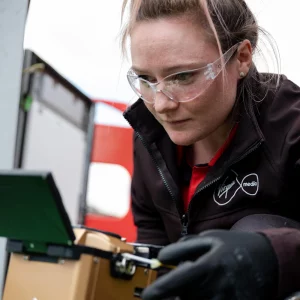Sponsored Links
Ofcom Chief - BBC Shouldn't be Forced to Pay ISPs
Posted: 23rd Apr, 2008 By: MarkJ
Ofcom's chief executive, Ed Richards, has told a session of MP's at the Commons Culture, Media & Sport and Business and Enterprise committee that the BBC should not be forced to help fund the networking costs of ISPs. He also warned providers that the way in which broadband speeds were advertised would need to be cleaned up within weeks or risk the introduction of tougher rules.
Tiscali and Virgin Media have frequently warned of higher prices and or greater service restrictions unless the BBC made contributions to the cost of allowing customers to view iPlayer (IPTV) style content (news) over their networks.
The Guardian quotes Richards as saying that getting the BBC to help pay ISPs for the content distribution was one possible solution.. "[But] it is not necessarily the only way it can happen and it is not necessarily the way we would anticipate it will happen. I am not convinced myself that the right answer to that is to get the BBC to pay for the iPlayer."
Instead he warned that the more sensible option would be for ISPs to make the necessary investments themselves, which could in turn cause prices to rise. It's certainly a sentiment that we'd agree with. Some ISPs have simply become victims of their own budget priced model, which can already result in poor performance.
The Internet has continued to expand and grow, pumping out ever higher quality content, yet by comparison most providers have gotten cheaper, due in part to an aggressive level of market competition and lower unbundled (LLU) network costs. However, the balance may now have swung too far in the wrong direction; sooner or later somebody will have to blink.
However, Richards stressed that some ISPs would probably still attempt to do deals with specific content distributors and in return offer customers "content-led tariff models". Virgin Media's CEO recently hit the headlines when he colourfully proposed something similar (original news).
Meanwhile, speaking about the separate issue of Next Generation network funding, Ofcom's chairman, Lord Currie, warned against the use of public funds to help in its deployment: "I would have thought the cost here is very considerable and I would have thought it was probably an unnecessary use of public funds."
Sadly this is a somewhat narrow perspective to have and fails to recognise the pace at which online content and consumer demand is changing. The debate continues.
Tiscali and Virgin Media have frequently warned of higher prices and or greater service restrictions unless the BBC made contributions to the cost of allowing customers to view iPlayer (IPTV) style content (news) over their networks.
The Guardian quotes Richards as saying that getting the BBC to help pay ISPs for the content distribution was one possible solution.. "[But] it is not necessarily the only way it can happen and it is not necessarily the way we would anticipate it will happen. I am not convinced myself that the right answer to that is to get the BBC to pay for the iPlayer."
Instead he warned that the more sensible option would be for ISPs to make the necessary investments themselves, which could in turn cause prices to rise. It's certainly a sentiment that we'd agree with. Some ISPs have simply become victims of their own budget priced model, which can already result in poor performance.
The Internet has continued to expand and grow, pumping out ever higher quality content, yet by comparison most providers have gotten cheaper, due in part to an aggressive level of market competition and lower unbundled (LLU) network costs. However, the balance may now have swung too far in the wrong direction; sooner or later somebody will have to blink.
However, Richards stressed that some ISPs would probably still attempt to do deals with specific content distributors and in return offer customers "content-led tariff models". Virgin Media's CEO recently hit the headlines when he colourfully proposed something similar (original news).
Meanwhile, speaking about the separate issue of Next Generation network funding, Ofcom's chairman, Lord Currie, warned against the use of public funds to help in its deployment: "I would have thought the cost here is very considerable and I would have thought it was probably an unnecessary use of public funds."
Sadly this is a somewhat narrow perspective to have and fails to recognise the pace at which online content and consumer demand is changing. The debate continues.
Search ISP News
Search ISP Listings
Search ISP Reviews
Latest UK ISP News








Cheap BIG ISPs for 100Mbps+
150,000+ Customers | View More ISPs
Cheapest ISPs for 100Mbps+
Modest Availability | View More ISPs
Latest UK ISP News
Helpful ISP Guides and Tips
Sponsored Links
The Top 15 Category Tags
- FTTP (6803)
- BT (3882)
- Politics (3076)
- Business (2767)
- Openreach (2664)
- Building Digital UK (2514)
- Mobile Broadband (2476)
- FTTC (2142)
- Statistics (2130)
- 4G (2093)
- Virgin Media (2026)
- Ofcom Regulation (1780)
- 5G (1733)
- Fibre Optic (1604)
- Wireless Internet (1595)
Sponsored
Copyright © 1999 to Present - ISPreview.co.uk - All Rights Reserved - Terms , Privacy and Cookie Policy , Links , Website Rules






























